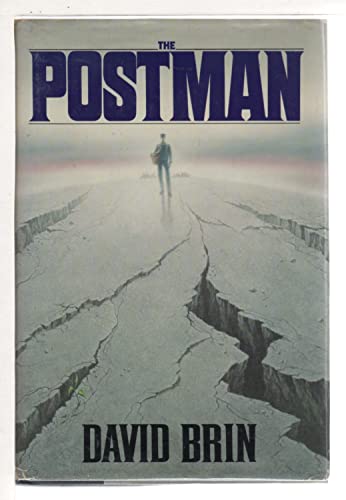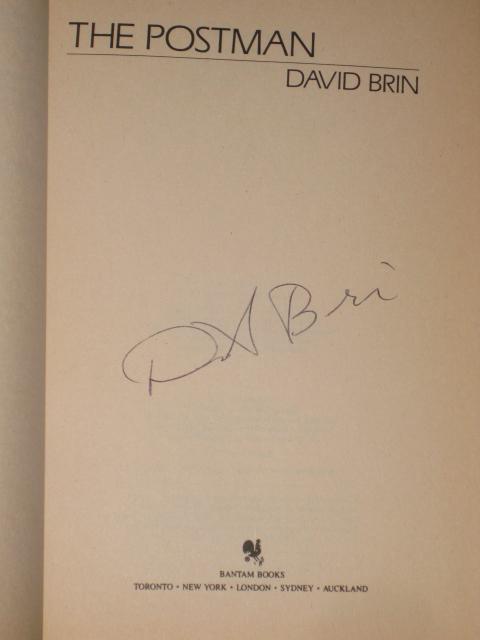
The Postman is a repetitive lesson in critical thinking. Just as we remember the myths, we have to remember the treacherous nature of Big Lies. That it still rings true twenty-five years later is not surprising as long as we have some form of society, post-apocalyptic or not, those who tell Big Lies will stay with us. This is obviously rhetoric on Brin's part against what he sees in politics in 1985. Those types will never call you on the facts. Those who want an excuse to hate or blame-those with big but weak egos-will leap at a simple, neat explanation for the way the world is. Weave your lies into the shape of a conspiracy theory and repeat your assertions over and over again.

Just sound like you know what you're talking about-as if you're citing real facts.

Holn rises to popularity prior to the apocalyptic "Doomwar" (which is a really cheesy name) with a book that employs what Gordon calls "the Big Lie" technique: The strong survive and the weak obey-or perish. Playing the role of antagonists in The Postman, the Holnists follow the writings of anarchist survivalist Nathan Holn. Nevertheless, we must tread carefully, lest myth cross that line from useful propaganda to Big Lie. Myths are not, in and of themselves, bad-if we take Gordon's dream featuring Benjamin Franklin playing chess with a supercomputer at face value, it would seem that myths are necessary for the preservation of a stable, just nation. The Postman reminds us that it behoves us to remember this fact. MacDonald's "National Dream," anyone? We codify, honour, and embellish these myths (or in the case of my example, we pay Pierre Berton and the CBC to do it for us) upon these myths, we build our national identities and ideologies. more so than my Canada, but every country has its founding myths. It probably shouldn't be subtle, because it's such a fundamental part of the fabric of our society-perhaps the U.S. Mail service in Oregon and hails the coming of the "Restored United States."īrin does not proselytize this theme subtly, but that's OK. What matters is not their truthfulness but that they provide hope and inspire people to do great things, something Gordon Kranz discovers when he singlehandedly re-establishes the U.S. The central theme of this book is how humanity depends on myths to survive, and that these myths are always exaggerated and perhaps even, at their core, false.

This is not a book to be treated delicately or reverently it is meant to be read, re-read, enjoyed, and explained.Īs good fiction, and science fiction, is wont to do, The Postman made me think. It fits perfectly with the atmosphere that David Brin creates. It's a movie tie-in Bantam paperback that I found at a used bookstore, the pages ever so slightly yellowed, the cover worn, its top corner ever so slightly curling up in a dog's ear. My copy of The Postman is battered, well-read, and much loved.


 0 kommentar(er)
0 kommentar(er)
